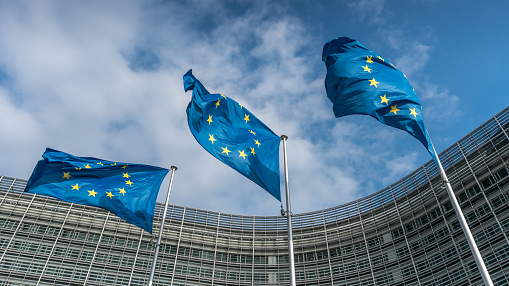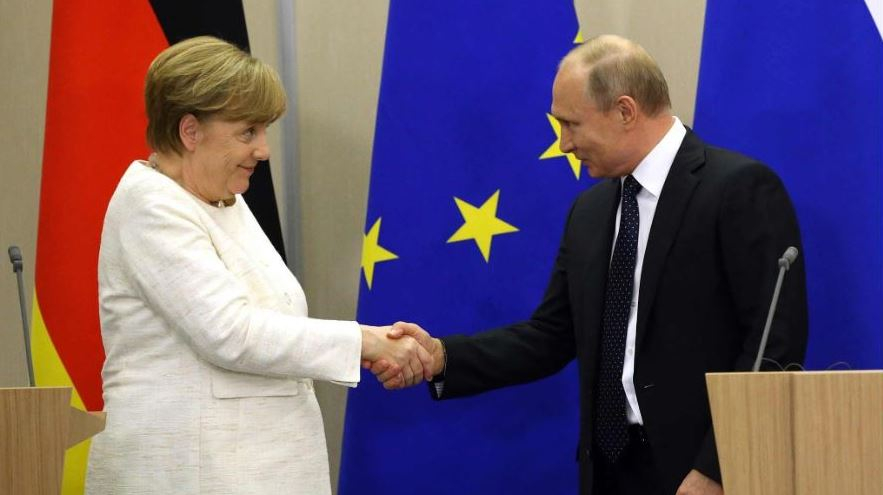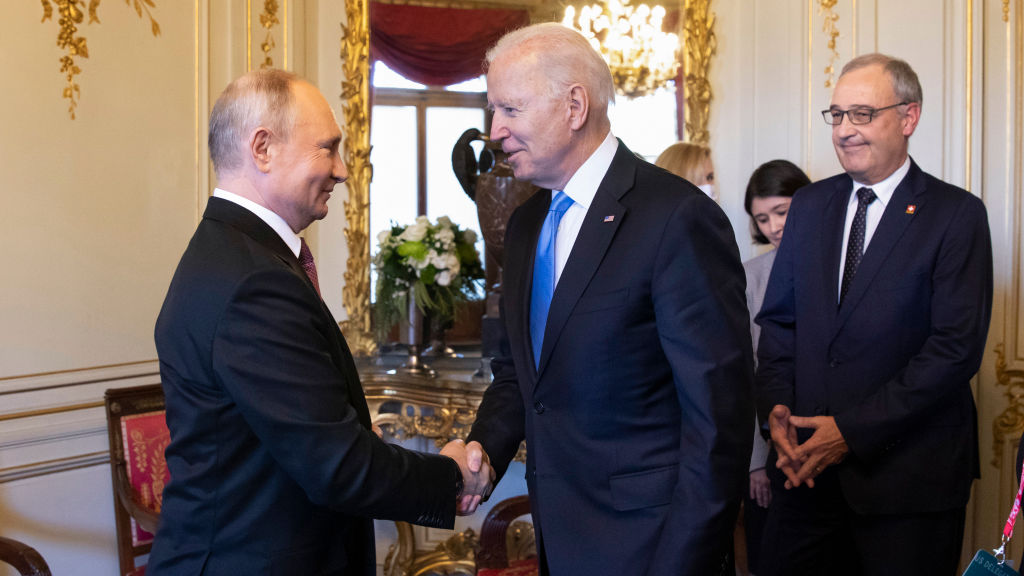By Thomas O. Falk

Editor's note: Thomas O. Falk is a London-based political analyst and commentator. He holds a Master of Arts in international relations from the University of Birmingham and specializes in U.S. affairs. The article reflects the author's opinions and not necessarily the views of CGTN.
German Chancellor Angela Merkel and French President Emmanuel Macron had proposed a European paradigm shift, a recalibration of Europe's Russia stance by convening a summit with Vladimir Putin. However, the idea was not well received at the EU's summit in Brussels last Thursday. Instead, the member states agreed on further pressure on the Kremlin – a mistake and a missed opportunity.
How should Europe deal with Russia? Since Russia's annexation of Crimea and the Ukraine crisis, the EU's largest neighbor has also been its most challenging. According to Russian Foreign Minister Sergei Lavrov, bilateral relations are at an all-time low. His meeting with EU foreign affairs representative Josep Borrell in Moscow in February displayed how deep the rift has become.
The latter has continuously become worse since 2014 and with no end in sight. New momentum in the European-Russian relationship would therefore be entirely appropriate. After all, even pro-European observers will have to agree with the following premise: All the sanctions that Europe has been imposing on Russia for years have not influenced the Kremlin's political activities but were severely detrimental to the relationship.
Angela Merkel and Emmanuel Macron had rightly called for a top EU meeting with Russian President Vladimir Putin. They presented a proposal on Thursday at the EU summit in Brussels. However, the Eastern European countries blocked the plans for a joint meeting with Putin.
The arguments of some of the Eastern European states were bizarre, if not unworldly. In their view, one can only hold talks with nations that either have precisely the same opinion or admit that they are "guilty" in the eyes of the Europeans. Moreover, actively engaging with Putin would "look weak," they argued.

One does not have to look far back in history to see that this assumption maybe wrong, as initiating dialogue is not a sign of weakness, but indeed of strength.
For instance, In 1967, the Belgian Foreign Minister Pierre Harmel presented his NATO partners with the Harmel Doctrine, which had a decisive influence on the further course of the Cold War. Until the fall of the Soviet empire, this doctrine formed the essential strategic basis in dealing with the Soviet Union.
It determined 2 core principles in the relations with the eastern neighbor: deterrence and openness to dialogue. Moscow should be signaled at all times that the West was ready for talks. However, these negotiations should only be conducted from a position of strength.
It's a maxim that was omnipresent throughout the Cold War, even when Washington and Moscow pointed nuclear weapons at each other.
Moreover, pretty much all U.S.-Russian summits since the 1950s were shaped by the principle: we agree that we disagree. Talks were always held, nonetheless! That was good and right. And no sign of weakness.
And Germany itself once demonstrated how dialogue can always be successful, even in times of crisis, even if it can be an arduous journey.

"Wandel durch Annährung" - change through rapprochement was a West German strategy a good 50 years ago that would alter the status quo. In the middle of the Cold War, the focus should no longer be on confrontation but on understanding and small cooperation steps. It was a great and, at the same time, groundbreaking approach.
Chancellor Willy Brandt's paradigm shift contributed significantly to the fact that the Iron Curtain opened bit by bit. He achieved this by seeking human, cultural and economic contact with his neighbors - despite ideological differences.
Brandt's Ostpolitik is reminiscent of Merkel's and Macron's idea of a long-overdue change in strategy for the EU's Russia approach.
It should be a blueprint for the EU on how to deal with Putin. Russia and Brussels will invariably pursue their own geopolitical interests. However, a dialogue must always be offered openly, and the past few years of empty, misguided sanctions are a testament to the latter.
Angela Merkel and Emmanuel Macron are aware of it, which is why they sought to introduce their very own version of Ostpolitik. However, their advance was not heard.
A summit meeting with Putin would certainly not have immediately solved all the problems between Brussels and Moscow. Nevertheless, it would have made sense to open up channels for discussion and not let the contact with Putin be severed further.
U.S. President Joe Biden currently led by example when he met with Putin. Apparently, his strategic thinking is more pronounced than that of the EU, which once again fails to agree on a common and coherent foreign policy vision.













